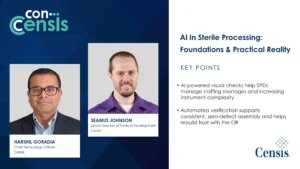Use Cases and the Technology Enabling Medical Data, Privacy and Anonymization
Health data makes up more than 30% of the world’s data (Intel, 2022) — and it’s growing each year. The data is more than tangible, straightforward information, like dates of vaccinations and test results. It also includes contextual data, like neighborhood qualities, diet trackers, exercise trackers, sleep monitors, and more. Intel’s principal health engineer, Abhishek Khowala, and Agata Chudzinska, head of AI at TheBlue.AI, discuss the necessity of anonymously sharing health data.
With a worldwide shortage of providers, ageing populations, and increasing multi-chronic diseases, sharing, understanding, and learning from health data is more critical than ever. Shared data helps with quicker drug development, more effortless transfer of care, and higher collaboration between research institutes.
“Structured data is what can be presented in a relational database. We pretty much know what fields are related to privacy, and it is a little easier to redact those or remove that from the data. However, the vast majority — over 80% of data — is unstructured; it is tougher to analyze this unstructured data and find out where exactly there is any kind of identifiable information,” says Khowala.
One solution to this issue is natural language processing, an AI feature applied to clinical notes to ensure anonymity. The technology can make sense of the text and remove identifiable information.
Intel and The Blue.AI implemented a mixed-reality solution at a Florida hospital. The solution included multiple sensors and cameras which collected data about patients and staff, they then used Computer vision technology to remove any personally identifiable information.
“In all of these cases, we always need to give humans the possibility to check it,” Chudzinska explains. One example was a photograph of clinicians with their consent after surgery. However, a screen was visible in the background with the name and patient information on it who had undergone surgery. “It’s not always obvious what kind of information can be visible that leads to a specific individual,” Chudzinska continues.
Protecting personal identifiers when sharing health data is just as necessary as sharing the data itself. “What use would the medical data be if it is not shared?” Khowala asks. Ensuring protection is a barrier to data sharing. “Over 70% of the countries worldwide — about 140 countries — already have some kind of regulation that protect the data and privacy of the individuals,” says Chudzinska. AI streamlines the protection process for facilities and makes it possible to remove personal information in minutes and hours instead of days or months with human analysis.
Follow leaders in AI technology, Agata Chudzinska and Abhishek Khowala on LinkedIn. Learn more about Intel’s applied AI health data case studies on the website.
Subscribe to this channel on Apple Podcasts, Spotify, and Google Podcasts to hear more from the Intel Health and Life Sciences at the Edge.








